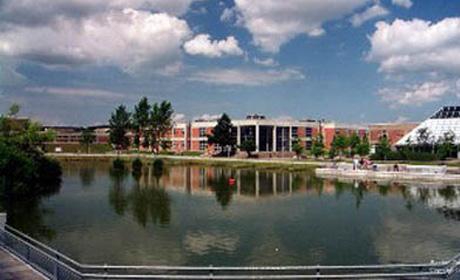BSc Sustainable BiotechnologyAdd to shortlist
Natural Sciences
Biotechnology
BSc Sustainable Biotechnology
3 years
€0 pa
Programme profile
Natural resources should be exploited in a smart way! The development of green technologies is a highly prioritised and rapidly growing area, which is fundamental for the development of a sustainable society. In the last century we have built our society upon fossil resources. Mineral oil still constitutes the most important source of liquid fuels, but it is also an important raw material for the production of plastics, chemicals, pharmaceuticals, etc.Within one generation, we need to exploit alternative sustainable resources to compensate for the forthcoming depletion of mineral oil but also to deal with greenhouse gases and the associated climate effects.
Biomass is assumed to be the most important replacement for oil as an industrial raw material. Oil refineries will be replaced by bio refineries where the processes are based upon microorganisms, enzymes and chemical catalysis. The products are biofuels, biochemicals for the pharmaceutical - and chemical industry and biologically active compounds. Oil will be replaced by crop residues, algae, and industrial wastes from food production, which will be converted into the products. The current century has been considered the century of biology. Biological solutions are necessary to develop sustainable solutions to the many global challenges such as depletion of resources, climate changes, lifestyle diseases, food supply, etc.
This programme has been structured to ensure a clear technical and scientific progression in which you will obtain competences within molecular biology, biotechnology, microbiology, biorefineries, sustainability and other science and engineering research areas. Through the choice of projects you will have the opportunity to focus on either molecular biological biotechnology or process oriented sustainable biotechnology.
Programme content
Year 1:
In the first semester, you will obtain an overview of current biological production (food production, pharmaceuticals, enzymes, ingredients and chemicals) and how it can be uncoupled from fossil resources. In the second semester, the weight is put on biochemistry and cell biology in an applied perspective.
Year 2:
The organisms and their products are the focus of the third semester. A project deals with biofuels combining the knowledge of the organisms, their diversity and their processes. In the fourth semester, you will work with the processes involved in sustainable biotechnology. Your biological skills will be expanded with genetics and molecular biology and the focus will be modification of organisms for biological production.
Year 3:
The fifth semester is devoted to the design of a sustainable biotechnological process. This is supported by courses in biotechnological process techniques, mathematical modelling of biotechnological processes, and statistics. The major part of the last semester is the bachelor project, which you can carry out in collaboration with a company or as a research project in your group. In the theory of science course you will be introduced to ethical problems and to the history of biotechnology. Finally you have electives, which can be used for other AAU courses or for courses e.g. at a foreign university
Progression
The university currently offers the following relevant masters programme, taught through English:
Sustainable Biotechnology
Entry Requirements
3 A-levels (grades between A and E) + 3 GCSE (grades between A and C). A-Levels to include Maths, Physics & Chemistry
Six subjects at Leaving Certificate including at least two 2 at HC3. Subjects to include Maths [Hons], Physics & Chemistry
No
No
No
01 February
15 March

 Join us on Facebook
Join us on Facebook